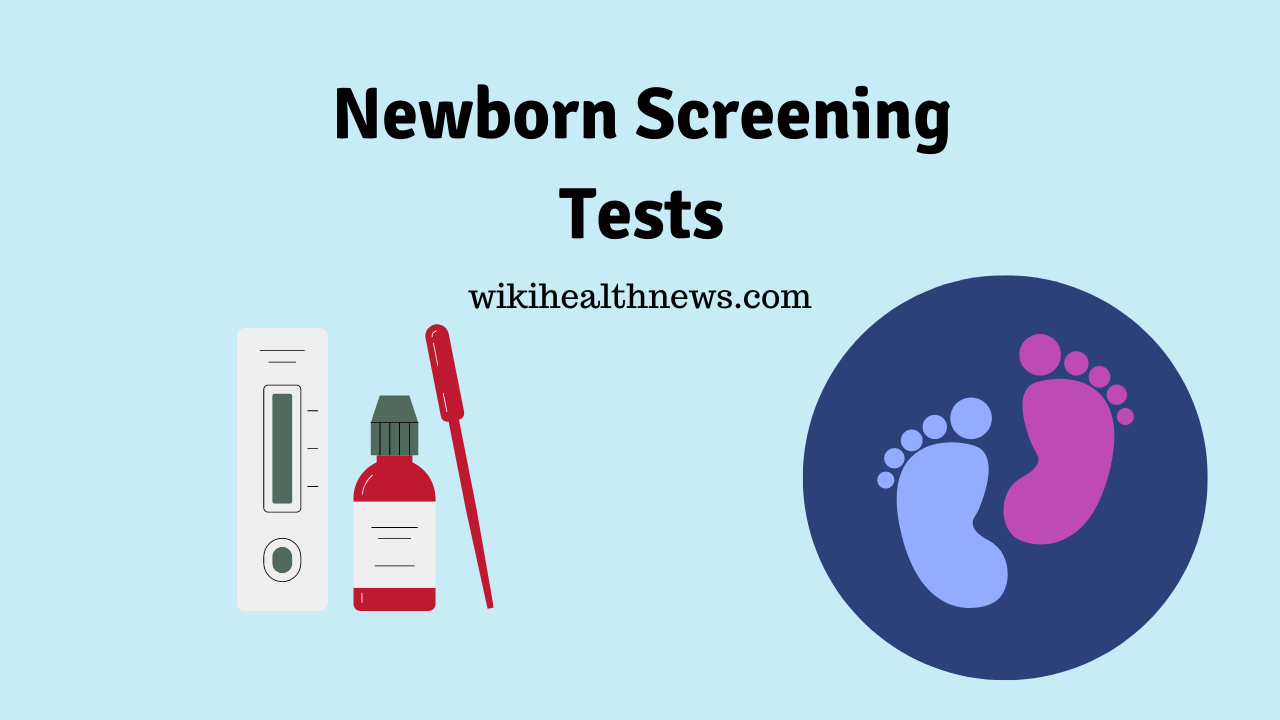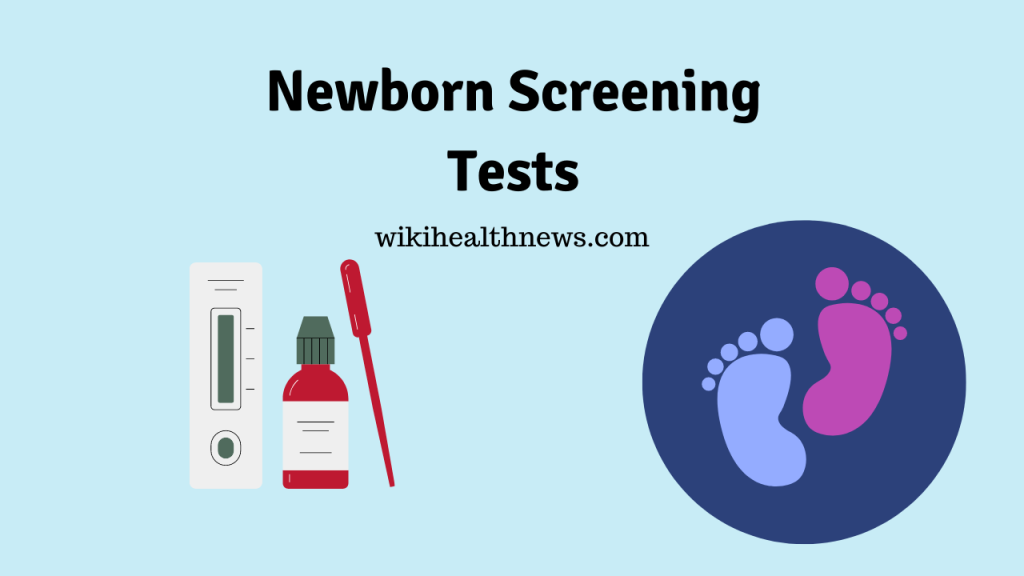Newborn Screening Tests For Your Baby

Nearly every baby will have a simple blood test to check whether for a disorder that is not apparent immediately after delivery. Some of this disease is genetic, metabolic, blood or hormone related. Each baby requires screening tests, but the specific tests performed vary among the states.
A heel prick is used to collect the baby’s blood for newborn screening. The blood drops are collected in a small vial or a special paper. The blood is then sent for testing. The baby heel may have some redness at the pricked site, and some babies may have bruising, but this usually disappears in very few days.
What is newborn screening?
Newborn screening is a public health service done for a baby. Every newborn is tested for a group of health diseases that isn’t otherwise found at birth. With a simple blood test doctors will be able to check for any rare genetic, hormone related and metabolic conditions that can cause serious health problems. Newborn screening let’s doctors diagnose the babies quickly and start treatment as soon as possible.
Which screening tests are included?
Screening varies by clinics. Tests can be variable according to available technology and treatments. Although there are national recommendations for newborn screening, it is up to each state to decide which test is to include.
The newborn screening test includes:
Phenylketonuria (PKU):
Phenylketonuria is an inherited disease in which the body cannot metabolize a protein called phenylalanine. It is estimated that 1 in every 10000 to 15000 babies is born with PKU mostly in the U.S. Without treatment, PKU can cause intellectual disability.
Congenital hypothyroidism:
This is a condition in which the baby is born with low thyroid hormone. Hypothyroidism is also quite common and has almost doubled in the past 20 years to approximately 1 in 2500 to 3000 babies born in the U.S. untreated low thyroid hormone levels can also cause mental developmental problems and poor growth.
Galactosemia:
This is an inherited disease in which the baby isn’t able to metabolize galactose, a milk sugar. It occurs in about every 53000 births. Without treatment, galactosemia can be life threatening. Symptoms may start in the first two weeks of birth.
Sickle cell disease:
This inherited disease occurs primarily in African Americans but will also occur in Hispanics and Native Americans. The sickle cell disease creates a severe form of anemia. There are different types of the disease. The disease occurs in about one out of every 15000 baby’s births. Early diagnosis of sickle cell disease can help reduce some of the risks which include severe infections, blood clots, and stroke.
Homocysteinuria:
This inherited disorder affects 1 in 200000 babies and causes intellectual disability, bone disease, and blood clots. It is caused by a deficiency of enzymes necessary to digest an amino acid called methionine.
Biotinidase deficiency:
This inherited disease is characterized by a lack of the biotinidase enzyme. This enzyme is needed for metabolizing biotin, a B vitamin. It affects 1 in 60000 babies. Lack of enzymes can lead to severe acid build up in the blood, organs, and body systems.
Congenital adrenal hyperplasia:
Most countries screen for this inherited disease of the adrenal glands. Babies born with congenital adrenal hyperplasia (CAH) cannot make enough of the hormone cortisol, which helps to control energy, sugar levels, blood pressure, and how the body responds to the stress of the injury or illness. CAH may also affect the development of the genial and the hormones of puberty.
Other tests screen for disorders including cystic fibrosis, amino acids disorders, fatty acid oxidation disorders, hemoglobin disorders, lysosomal storage disorder, organic acids disorders and severe combined immunodeficiency. Most screening cannot be performed until a baby has received at least 24 hours of breast milk or formula.

How is newborn screening done?
A small blood sample is taken by pricking the baby’s heel and is tested. This happens before the baby leaves the hospital, usually at 1 or 2 day of age. Talk to the doctor about the newborn screening if the baby was not born in the hospital. The blood sample should be taken after the first 24 hours of the life. Some babies are tested within the 1st 24 hours because sometimes moms and newborns are discharged within 1day.
When will the result be ready?
Results of newborn screening for hearing loss and heart disease are given as soon as the test is done. Blood test results usually are ready by the time is ab baby is 5-7 days old. Often parents won’t hear about the result of the id screening test being normal. They are contacted if the test is positive for conditions. A positive newborn screening test does not mean a child definitely has the medical conditions. Doctors will give the diagnostic treatment. The treatment may include special formula, diet restrictions, supplements, medicines, and close monitoring.
Read more











